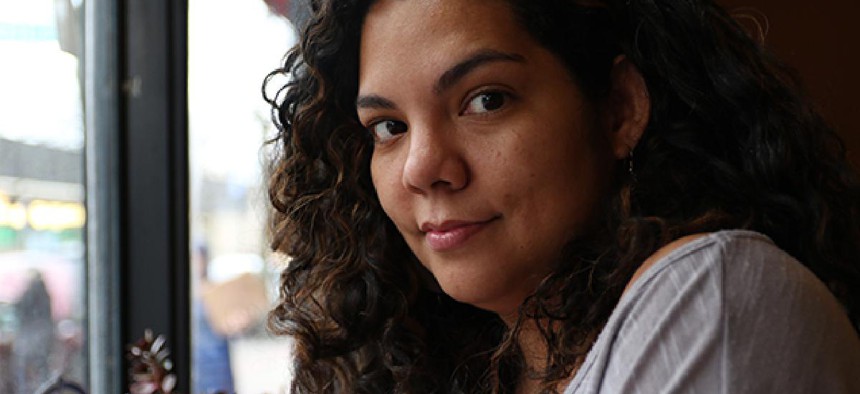Cidadão Global closes its physical doors but will live on to help Brazilians virtually

When Maria de Fatima Mosconi, a 64-year-old Brazilian immigrant, found herself undocumented and unprotected in New York in 2012, she took the advice of a fellow Brazilian and headed straight to 34th avenue in Long Island City, Queens. Her destination was a small community center with the Portuguese words “Cidadão Global,” or global citizen, written in green across a yellow awning.
“I needed a place to learn about where to get the support you need in this country,” said Mosconi.
Today, Cidadão Global is houseless. But it’s still helping people like Mosconi.
Cidadão Global is a nonprofit dedicated to helping Brazilians throughout New York City. The organization was founded in 2009 in Astoria, Queens, home to a bustling Brazilian community. It’s mission is to help create a more unified Brazilian immigrant community, nurture a culture of civic engagement and protect immigrant rights.
Stephanie Mulcock, an immigration attorney who immigrated to the United States from Brazil as a teenager, took over as director of CG in 2013. She and 10 volunteers operate programming with a budget of $50,000. The nonprofit has received grants from The New York Immigration Coalition, Sparkplug Foundation, Citizens Committee for New York City, the Catholic Campaign for Human Development and the office of Councilman Jimmy Van Bramer.
The Brazilian consulate estimates that there are about 300,000 Brazilians living in the tri-state area with at least 125,000 in New York City. Cidadão Global is the only community-based organization that provides human services such as legal aid and worker-rights workshops to the Brazilian community in Portuguese. Client referrals to Cidadão Global are done primarily through word of mouth.
According to Stephanie Mulcock, many Brazilian immigrants are employed as domestic workers. They are particularly vulnerable to exploitation because a lack of public information in Portuguese leaves them ignorant of their rights as immigrants. Brazilians are often encouraged to go to organizations that provide information and services in Spanish and English, but Portuguese and Spanish are not the same language.
For years Cidadão Global has struggled to stay afloat financially. The majority of the organization’s operating money was spent on rent.
“The more I look into this, the more it makes sense to create a space where you don’t really need a physical space most of the days of the week,” said Mulcock. She wagered that primarily running the organization virtually would allow her to have an infinite amount of interconnected volunteers while freeing up more time to keep up with client notes. And most importantly, it would save her some overhead costs.
So in June of 2017, Mulcock made the decision to close the organization’s physical doors and offer services online. She has been helping clients virtually since the summer but still wants a physical space for at least two days a week.
Mulcock spends her weekends and afternoons visiting Brazilian churches searching for potential spaces to share because there needs to be a place where community members like Mosconi can physically find the nonprofit if they need to, Mulcock said. WeWork, a shared office space franchise with locations in Long Island City is out of the organization's price range.
In the meanwhile, CG’s volunteer staff helped Mosconi learned about immigration law, policy and the basic rights that were hers regardless of immigration status. She then participated in a daylong training hosted by the New York Immigration Coalition on how to navigate the immigration system. Through joint meetings with other nonprofits such as the National Domestic Workers Alliance, Mosconi learned about her rights as a domestic worker.
“Everything that changed my life was through CG,” said Mosconi.
Mulcock is determined to keep helping Brazilian immigrants.
“We have started 2018 on a much better note.” CG was finally able to receive 501(c)3 status and Mulcock has built a board of directors comprised entirely of Brazilian community members who have received services and volunteered at the CG.
“This is my life’s work,” said Mulcock. “I want to see it through, I want to see it work.”